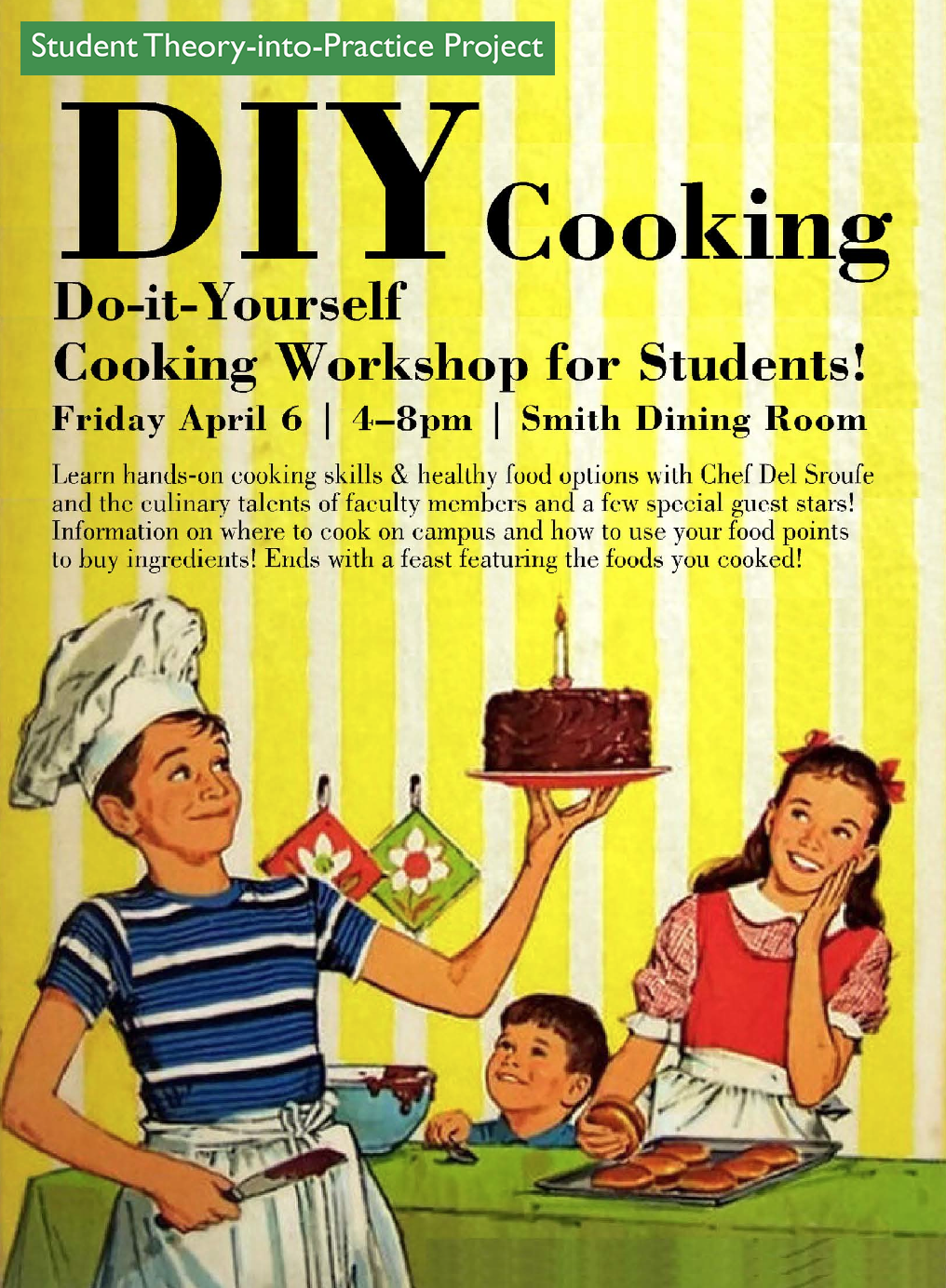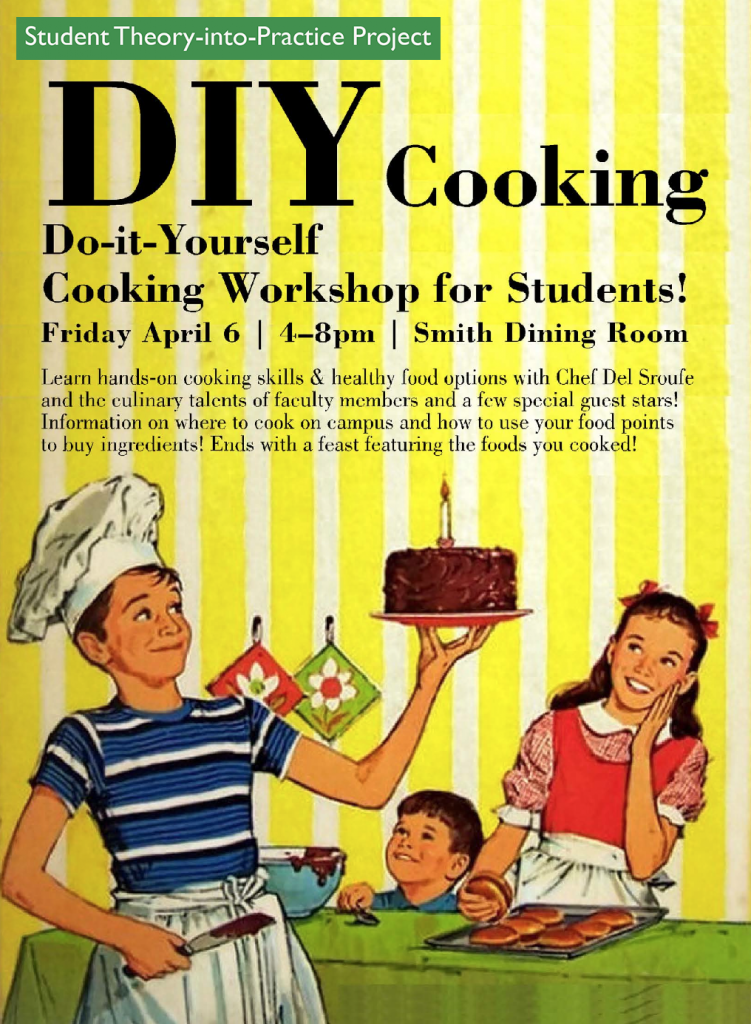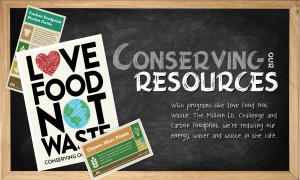Making and eating food is one of the most socially and biologically important human activities. Making healthy food is much easier, and more fun, than most students think. In order to encourage social DIY cooking on campus, with an emphasis on healthy eating, we developed a DIY Food Workshop. The workshop covered basic cooking skills and healthy DIY food options, with an emphasis on interaction and engagement. The event ends with a meal, consisting of foods prepared during the workshop. The first workshop was held in the spring of 2012.
DIY Food Workshop
Date: April 2012
This workshop may be offered again if there is interest. Please contact John Krygier if you are interested in holding another DIY food workshop.
Project research, organization and planning: Olivia Gillison (project for Geography 360: Environmental Geography & Independent Study).
Guest Chef: Del Stroufe, Chef & Educator, Wellness Forum Foods, Columbus OWU Chefs: 5 OWU faculty, staff, or students with cooking skills to assist
Event Publication: OWU Eating Green Map, Guide, and Cookbook: Includes information on student-accessible kitchens, sources of ingredients, cooking glossary, basic kitchen tools and ingredients to have on hand, and suggestions for cooking & eating social events.
1. Talk: Introduction (30 minutes): Del Stroufe provides an overview of DIY cooking and healthy eating, and an introduction to the workshop.
2. Talk: DIY Cooking on Campus: the Facts (30 minutes)
- available kitchens & cooking tools
- portable cooking setup (camp stove, etc.)
- local / organic food options
- buying ingredients from Chartwells with food points
- off campus food purchase options
- encouraging healthy DIY social cooking & eating
3. The Menu & Preparation (2 hours)
- Smith: drinks but don’t eat other food!
- Minimize bothering staff: Dan Magee
- participants split into groups of 4 (10 groups max)
- five dinner courses: workstation for each: soup, stir fry, pasta, pizza, dessert (fruit crisp)
- workstation: preparation of ingredients, assembly, cooking
3a. Basic food preparation skills
- hands-on experience with skills needed for workshop cooking
3b. Food assembly and cooking
- each group of participants experiences each workstation
4. Eating & Future Workshops (focused on different recipies, cooking skills, global cuisines, etc.)
Workshop outline & booklet (PDF): DIY Cooking: Do-It-Yourself Cooking Workshop for Students


